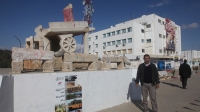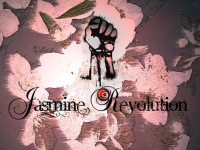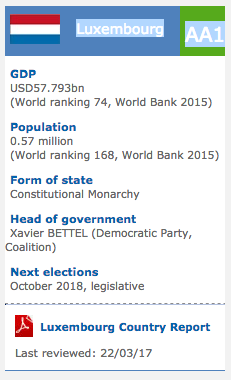Tunisia: Outlook for 2013-17
2012/12/08

The country (Tunisia) is located in Northern Africa and bordering the Mediterranean Sea, between Algeria and Libya.
The country has borders with Algeria for 965 km and Libya for 459 km.
Then land in Tunisia is a lot of mountains in north, hot and dry central plain; semiarid south merges into the Sahara.
Tunisian land covers an area of 163 610 km².The climate is temperate in north with mild and rainy winters and hot with dry summers with the desert in south.
Overview
The establishment of a permanent government after elections in mid-2013 will be no guarantee of stability if the economic situation does not improve. The government that emerges from the next elections is likely to be another coalition led by Hizb al-Nahda. Secular parties in the coalition would temper the post-election government's Islamist-tending policies. The downside of another coalition government is that establishing the clear policy lines wanted by local business and foreign investors will be more difficult. The government is expected to pursue an expansionary fiscal policy in 2013 14. The budget deficit will average 5.3% of GDP in 2013-17, but will trend lower as the forecast period progresses. We forecast that real GDP growth will be weaker than previously forecast in 2013-14 owing to worsening domestic unrest and a deteriorating trade profile. Growth will be stronger from 2015 onwards, averaging close to 5% in 2015-17. Inflation will subside during 2013-15, aided by an easing in global commodity prices, but upward price pressure stemming from higher oil prices are likely to reverse this decline in 2016-17. We expect the current account to remain in deficit in 2013-17, as a persistent trade deficit is only partly offset by an improving non-merchandise position in the latter half of the forecast period
Political outlook
After months of internal negotiations the three parties making up the coalition government have agreed that a parliamentary election and the first round of the presidential election will both be held on June 23rd 2013.
A new government was formed in December 2011. The cabinet is dominated by Hizb al-Nahda, which has taken 13 of the 29 minister and deputy ministerships, including amount the major portfolios with the exception of national defence and finance.
Economic policy outlook
The government is continuing with its policy of negotiating loan guarantees with its international partners.
Economic forecast
The trade deficit widened by 49% year on year in the first nine months of 2012, putting further pressure on the external balances. Export growth was mostly held back by sluggish demand in the EU, a key market for Tunisia.
Inflation estimate for 2012 to 5.5% as the Tunisian dinar is estimate to decline against a strengthening US dollar and will lead to higher than expected inflation in 2012. Estimate for Tunisia remains highly uncertain given the continuation of domestic strikes, which have caused disruptions in output. In addition, the possibility of a break-up of the euro zone has increased. Such a break-up would be detrimental to the Tunisian economy as Tunisia relies heavily on the EU for trade, tourism and remittances.
Outlook for 2013-17
The establishment of a permanent government after elections in mid-2013 will be no guarantee of stability if the economic situation does not improve.
The government that emerges from the next elections is likely to be another coalition led by Hizb al-Nahda. Secular parties in the coalition would temper the post-election government's Islamist-tending policies.
The downside of another coalition government is that establishing the clear policy lines wanted by local business and foreign investors will be more difficult.
The government is expected to pursue an expansionary fiscal policy in 2013-14. The budget deficit will average 5.3% of GDP in 2013-17, but will trend lower as the forecast period progresses.
We forecast that real GDP growth will be weaker than previously forecast in 2013-14, owing to worsening domestic unrest and a deteriorating trade profile. Growth will be stronger from 2015 onwards, averaging close to 5% in 2015-17.
Inflation will subside during 2013-15, aided by an easing in global commodity prices, but upward price pressures stemming from higher oil prices are likely to reverse this decline in 2016-17.
We expect the current account to remain in deficit in 2013-17, as a persistent trade deficit is only partly offset by an improving non-merchandise position in the latter half of the forecast period.
Review
After months of internal negotiations the three parties making up the coalition government have agreed that parliamentary elections and the first round of the presidential election will both be held on June 23rd 2013.
Dissatisfaction is on the increase, with the coalition members losing support. However, placating everyone is almost impossible.
The central bank governor has given a cautious assessment of the health of the economy. The generally gloomy prospects were underlined by the decision of Moody's rating agency to maintain its negative outlook.
The trade deficit widened by 49% year on year in the first nine months of 2012, putting further pressure on the external balances. Export growth was mostly held back by sluggish demand in the EU, a key market for Tunisia.
Tunisia has secured a guarantee from the Japanese government for a 50bn (US$600m) sovereign bond to be launched on the Japanese market before the end of 2012. This will help Tunisia to cover its growing current-account deficit.
- Related Articles

Africa's Relationship With China Is Ancient History
2017/07/02 In 2002 South Africa's Parliament unveiled a digital reproduction of a map - of China, the Middle East and Africa - that some speculated could be the initial map of the African continent. The Da Ming Hun Yi Tu - the Comprehensive Map of the Great Ming Empire - was drawn up around 1389 during the Ming Dynasty, according to historian Hyunhee Park.
Africa: Making Things Happen at the Bank - 'Not a Talk Shop' - Akin Adesina
2017/07/02 Dr. Akinwumi Adesina is focusing on five areas to achieve the African and world goals for a prosperous continent since becoming president of the African Development Bank - Africa's major public financial institution in September 2015. He was a keynote speaker at this month's Corporate Council on Africa's U.S.- Africa Business Summit in Washington D.C. and moderated a lively panel with five African government ministers. He as well received the Gene White Lifetime Succcess Award from the World Child Nutrition Foundation. This week, he was named the 2017 recipient of the World Food Prize, a prestigious honor that includes a $250,000 award. In an interview in Washington, DC, Adesina discussed the Development Bank's ambitious schedule and his vision for attracting the increase capital Africa needs. Posting questions for AllAfrica was Noluthando Crockett-Ntonga.
Climate change laws around the world
2017/05/14 There has been a 20-fold increase in the number of global climate change laws since 1997, according to the most comprehensive database of relevant policy and legislation. The database, produced by the Grantham Research Institute on Climate Change and the Environment and the Sabin Center on Climate Change Law, includes more than 1,200 relevant policies across 164 countries, which account for 95% of global greenhouse gas emissions.
Mohamed Bouazizi: Was the Arab Spring worth dying for? Five years since the Tunisian fruit vendor died after setting himself on fire, his family still hopes for change.
2016/01/06 Around noon on December 17, 2010, Ali Bouazizi's phone rang. It was his uncle Salah. "Grab your camera and come film," Salah told him. "Someone has set himself on fire in front of the provincial government building." At the time, Ali, presently 43, was active in the opposition against former Tunisian President Zine El Abidine Ben Ali. "Through our newspaper and website, we seized each opportunity to expose the government," he told Al Jazeera in an interview five years next the uprising.
The Norwegian Nobel Committee has decided that the Nobel Peace Prize for 2015
2015/10/10 The Norwegian Nobel Committee has decided that the Nobel Peace Prize for 2015 is to be awarded to the Tunisian National Dialogue Quartet for its decisive contribution to the building of a pluralistic democracy in Tunisia in the wake of the Jasmine Revolution of 2011. The Quartet was formed in the summer of 2013 at the same time as the democratization process was in danger of collapsing as a result of political assassinations and widespread social unrest.
- Tunisia News
-
- TUNISIA: Roman "underwater ruins" discovered in Tunisia
- AFGHANISTAN: UNWTO: International tourism – strongest half-year results since 2010
- BOTSWANA: Why governments need to support the financial sector to meet the unserved needs of smallholder farmers
- BOTSWANA: International Arrivals To Africa Reach More Than 18 Million In 2017
- TUNISIA: Roman ruins discovered underwater off Tunisia
- BOTSWANA: Africa: USA-Africa - No Policy? Bad Policy? or Both?
- Trending Articles
-
- CHINA: China welcomes Guinea to take part in Belt and Road Initiative
- CAMEROON: Poor End of Year Results for Cameroon Students
- AUSTRALIA: Queensland Bauxite Gains State Approval of Mineral Development Work Program
- KENYA: Kenya to hold fresh presidential election on October 17
- UGANDA: Ugandan Govt Starts Verifying International Academy Teachers
- CANADA: NAFTA renegotiation could be double-edged sword










